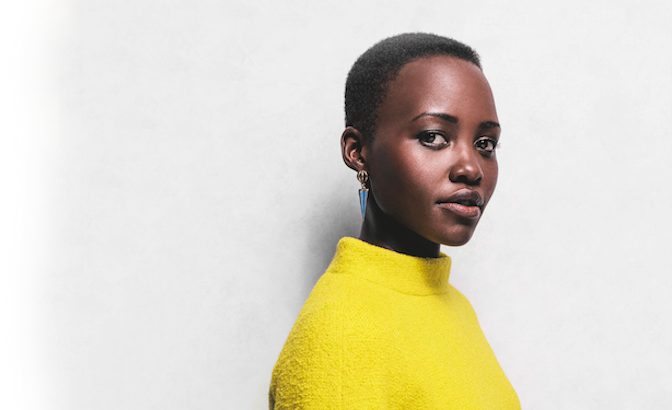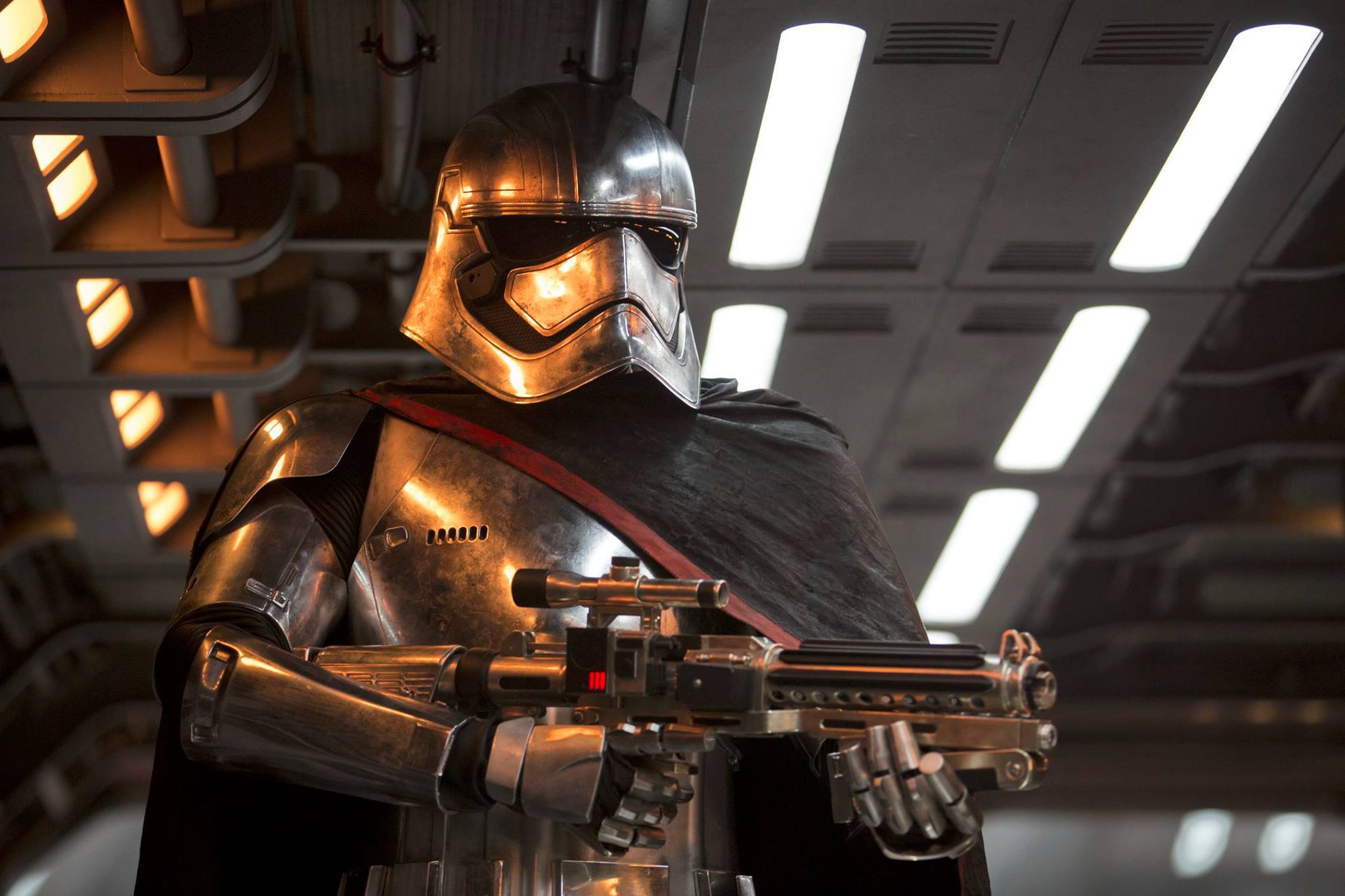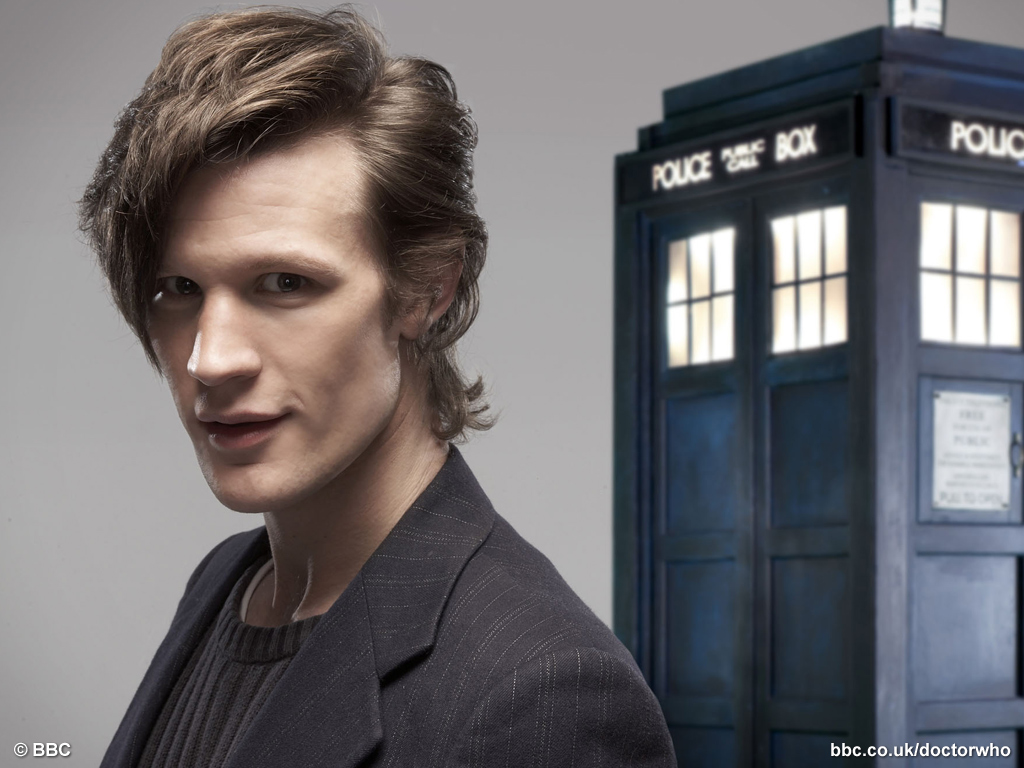When Lupita Nyong’o finally signed up for JJ Abrams’s long-awaited Star Wars film last year, she joined an exclusive club. Before her, only Sir Alec Guinness – who famously played Obi-Wan Kenobi in the very first Star Wars movie – had come to this iconic universe with an Oscar to his name. Quite some company to keep. But it underlined the depth and ambition of Abrams’s vision that Nyong’o should be on board. And, tellingly, Nyong’o’s new-found Hollywood power.
Of course, playing Maz Kanata, a 1,000-year-old space pirate, is quite a jump from her searingly honest, Oscar-winning depiction of Patsey in 12 Years a Slave, who is flogged just for wanting to wash with soap. Not least because Nyong’o had to don a motion-capture suit for her CG character in Star Wars.
“It was such a different world for me to work on that kind of film after 12 Years a Slave,” she admits. “I’m still learning so much about this business and it’s an education to work on a massive set, and being part of the huge operation that’s involved in making a Star Wars film. But I loved the beauty and fantasy of this kind of story.”
Nyong’o’s wide-eyed appreciation of the Star Wars world is shared by many of the young cast charged with making a fresh batch of Star Wars films resonate with new and established audiences. Fans were delighted with the return of favourites from the original trilogy, but it’s the sheer enthusiasm of new stars Daisy Ridley (Rey), John Boyega (Finn) and Nyongo’o herself that has hit home.
When the scenes set on the desert planet Jakku were filmed outside Abu Dhabi in 2014, there were few stories of the actors having time to explore their new temporary home in the Emirates. Ridley and Boyega have said they were so focused on making their characters as good as they could be that there was no time for anything else. Nyong’o is similarly ultra-committed to her art.
“I’ve always thought if I kept working hard and being patient eventually good opportunities would arise,” she says. “It’s very reassuring to see one’s faith is rewarded, though I could not possibly have imagined anything like this.”
It’s this strong work ethic that earned Nyong’o an Oscar. She’s often characterised as an exciting young actor, but she underlines that though being Best Supporting Actress might have come as a “shock in the moment” for other people, it was a culmination of decades of effort for the 32-year-old.
“I loved make-believe,” she says of her childhood in Kenya. “I was the child in the cupboard playing with my Barbies. I started thinking about acting when I saw The Color Purple when I was eight. It was the first time I’d seen someone like me on screen. Whoopi Goldberg had my kind of hair and was dark like me. I thought maybe I could do this for a living.”
It was an ambition amplified by a brush with Hollywood 10 years ago, when she got a job as a runner on the set of the Oscar-winning political thriller The Constant Gardener, which was being shot near her family home in Nairobi.
“I was able to spend some time working for Ralph Fiennes,” she recalls. “He was very kind and we had some good conversations about acting and the business side of it, which was very helpful.” Fiennes was to prove an inspiration. Nyong’o told him she desperately wanted to be an actor and, as she recalls now, his advice was: “Lupita, only act if you can’t breathe without it.”
She couldn’t. Nyong’o went back to the States where she was majoring in African and film studies, got into the Yale School Of Drama, which counts Meryl Streep and Paul Newman as alumni, and just before she graduated earned her big break on Steve McQueen’s 12 Years a Slave.
“Yale was allowing graduating students to audition, which is normally prohibited while you’re studying,” she explains. “My manager, Didi [Rea], received the script for another client. When Didi read the role of Patsey, she said, ‘Oh, I think you’d be good for this.’
“I was invited to take part in the most gruelling audition process. Two weeks later I was invited to meet Steve in Louisiana and did my next audition with him. I returned to New York the next day and he called to tell me the part was mine. I’ll never forget that.”
And most people will never forget Nyong’o’s graceful Oscar acceptance speech. “It doesn’t escape me for one moment that so much joy in my life is thanks to so much pain in someone else’s,” she said, voice cracking with emotion, of the character she so mesmerisingly brought to life.
“So I want to salute the spirit of Patsey. This has been the joy of my life. When I look down at this golden statue may it remind me and every little child that no matter where you’re from, your dreams are valid.”
It’s this grounded belief in equality and human rights, combined with genuine star power, which makes Nyong’o so unusual in Hollywood, and all the more appealing for it. Yes, the beautiful ice-blue dress she wore at the Oscar ceremony was made especially for her by Prada. But, as she said disarmingly at time, it was a blue that reminded her of Nairobi. She wanted to wear a little bit of home.
“I’m very conscious of all the terrible and tragic events taking place all over the world, and I will speak out for human rights and women’s rights wherever I go,” she says, by way of explaining her regular engagements at events such as The Massachusetts Conference for Women. As she told the conference last year: “We continue to fight for equality, for justice, for freedom, for compassion, and we achieve the most when we are awakened and responsive to the desires of our individual hearts.”
But perhaps the reason these words – and her very public support of the efforts to stop elephant poaching in Kenya – resonate rather than get swept aside as the empty gestures of a celebrity, is that Nyong’o never proselytises. She enjoys life too.
“There should also be a place in our world for beauty and celebrations, and that is how I approach a place like Cannes,” she says of the film festival at which she caused a major sensation last year by wearing an exquisite Gucci designer gown. “What I love most about Cannes is that it’s festive, but for many different kinds of people. There are those walking down the street in ball gowns and then those walking down the street in little jean shorts. And somehow these two worlds are colliding and everything’s all well and good. It’s about film, art, business, and a little bit about fashion and glamour.”
Certainly, all these parts of her life combine in her lucrative work as brand ambassador for French cosmetics and skincare company Lancôme. She smiles at the suggestion. “There’s a bit of irony there because my mother refused to allow me to wear any make-up until I was 18. She has never worn make-up, and she felt strongly that I didn’t need to either. I’m still not a heavy user: I like cosmetics as a way of enhancing your natural beauty. Make-up for me is like the frame of an art piece.”
There’s her innate confidence – without a hint of arrogance – again. Sometimes winning an Oscar so early in a career can be a millstone, but it doesn’t feel like that with Nyong’o. She’s just finished wowing New York audiences in Eclipsed, the off-Broadway show set amid the Liberian civil war, and after Star Wars she appears as one of the leads in the intriguing chess biopic The Queen of Katwe and the remake of The Jungle Book. She is likely to start work on the film adaptation of Chimamanda Ngozi Adichie’s novel Americanah in 2016, too. All of which points to a versatile actor keen to make the very most of her opportunities.
“When you get into acting, you know that the odds are stacked against you,” she says. “But if you also feel that you have the talent and the ability to keep working hard, then you’re going to stay the course. 12 Years a Slave was my chance to prove myself, and now it’s up to me to keep finding good roles. The pressure will always be there but I kind of enjoy that. It keeps you hungry.”
She is just as hungry to make a real difference in terms of justice and equality in the world. “Well, I don’t see any value in getting depressed or feeling powerless,” she says. “You gain power and confidence from being willing to go out into the world and see what you can do. You might not always accomplish your goals, but you have to maintain your faith and self-belief. You can’t help yourself or others if you look inward and feel sorry for yourself. I believe that we have to challenge ourselves every day to go out and make the world better.”


